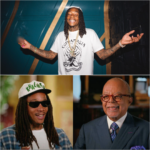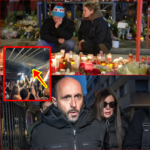Ricky Hatton: Remembering Britain’s Beloved Fighter and His Courageous Battle Beyond the Ring

Ricky Hatton will forever be remembered as one of Britain’s most inspiring fighters — not only for his achievements inside the boxing ring, but also for his honesty about the demons he faced outside of it. The 46-year-old former world champion was found dead at his home in Greater Manchester on Sunday morning, leaving the sporting world in shock and mourning. Police confirmed that his death is not being treated as suspicious.
For millions of fans, Hatton was a working-class hero, a fighter whose grit, charm, and relentless determination made him one of the most popular British boxers of his generation. He was scheduled to reprise his fighting days in December with a much-anticipated exhibition match in Dubai, highlighting his enduring passion for the sport. But for all the glory he achieved, Hatton’s most powerful legacy may well lie in his openness about mental health and the importance of confronting inner battles.
A Glittering Career
Born in Stockport in 1978, Hatton’s journey from the pubs and gyms of Manchester to the glittering lights of Las Vegas became a fairytale for British boxing fans. Turning professional in 1997, he won his first 42 bouts, rising through the ranks to capture world titles at light-welterweight and welterweight. His relentless, crowd-pleasing style earned him the nickname “The Hitman” and made him a fan favorite on both sides of the Atlantic.
His famous victory over Kostya Tszyu in 2005 to claim the IBF title cemented his place among the greats, while his clashes against Floyd Mayweather in 2007 and Manny Pacquiao in 2009 became global sporting spectacles. Though both fights ended in defeat, Hatton’s willingness to face the very best — and to do so with heart and courage — only deepened the respect he commanded from fans.
The Darker Side of Glory
Behind the fame, Hatton was wrestling with demons. He openly admitted that the crushing knockout loss to Pacquiao in May 2009 was a turning point, sparking a spiral into depression, substance abuse, and suicidal ideation. “When I got beat by Pacquiao, I was contemplating suicide,” Hatton once revealed in an interview. “I was going to do it in the car, with a knife. I felt like I’d let everybody down.”
The loss was only the second of his professional career, but its impact was devastating. Having been unbeaten for a decade, Hatton found himself suddenly stripped of invincibility, and the pressure of public expectation weighed heavily. Alcohol binges and cocaine use followed, as he struggled to reconcile his public image with his private pain.
Mental Health Campaigner

In later years, Hatton turned his struggles into a mission. As a father of three, he spoke openly about his darkest moments in hopes of breaking the stigma around men’s mental health. He told fans that the most dangerous opponent isn’t always standing in front of you with gloves on — it’s the voice inside your own head.
Hatton worked closely with charities and mental health organizations, using his platform to encourage men to seek help. “I thought I was being strong by bottling things up,” he admitted. “But real strength is talking, admitting you need support, and fighting for your health.”
His honesty won him admiration from fans and fellow athletes alike, with many crediting him for saving lives by sharing his story.
Outpouring of Tributes
News of Hatton’s death prompted an immediate outpouring of grief from across the sporting world. Fellow boxers, including Tyson Fury and Anthony Joshua, hailed him as both a warrior in the ring and a pioneer outside of it. Promoters and fans remembered the electric nights when “The Hitman” carried an army of British supporters to Las Vegas, turning fight weekends into festivals of patriotism and pride.
Social media was flooded with tributes that reflected not just his fighting spirit, but his humility and humanity. “He gave us unforgettable nights and showed us his heart, both as a fighter and as a man,” wrote one fan. Another commented: “Ricky wasn’t just a boxer. He was one of us. He made us believe anything was possible.”
A Complex Legacy
Ricky Hatton’s story is one of triumph, tragedy, and truth. He was a champion whose ferocious left hook and unrelenting drive won him belts and global acclaim. But he was also a man who struggled with depression, addiction, and self-doubt — struggles he bravely shared to help others.
As the boxing world mourns his passing, his legacy will endure not only in the record books but in the countless lives he touched by speaking openly about his pain. His story remains a stark reminder that even heroes have vulnerabilities, and that the greatest fights are sometimes the ones waged in silence.
Hatton leaves behind three children and an army of fans who will forever remember him as Britain’s working-class hero — a fighter to the end, in every sense of the word.
News
David Muir CRUSHES Competition! ABC World News Tonight DESTR0YS NBC by 1.6 MILLION — “UNSTOPPABLE DOMINATION!”
DAVID MUIR’S ‘WORLD NEWS TONIGHT’ DOMINATES THE NEWS RACE YET AGAIN, CRUSHING NBC BY 1.6 MILLION AND SEIZING #1…
David Muir Fans STUNNED as Anchor Suddenly Steps Away From ABC Desk — “THIS CHANGES EVERYTHING!” Pa.nic Erupts Online
VIEWERS SHAKEN AS DAVID MUIR STEPS AWAY FROM ‘WORLD NEWS TONIGHT,’ WITH LINSEY DAVIS LEADING COVERAGE OF DEADLY TAMPA…
Willie Geist sh0cks viewers after opening up about family health fears, hinting that a difficult decision may be ahead at NBC. Fans rush to learn what he revealed
Willie Geist Opens Up About Family Health Concerns, Sparking Emotional Reaction and Speculation About His NBC Future NBC’s longtime…
Stephen Colbert’s FINAL 7 WORDS Detonate Late-Night TV As Ri.vals Storm the Stage in Solidarity: “YOU WON’T SHUT ME UP EVER!”
THE AMERICAN BROADCAST OBSERVER “STEPHEN COLBER’T LAST STRIKE: THE MONOLOGUE THAT SHOOK LATE-NIGHT TELEVISION TO ITS CORE” The audience…
Jimmy Kimmel BREAKS DOWN On Air And Drops 7 Words That Freeze The Studio: “I’M DONE LETTING THIS HAPPEN!”
THE LOS ANGELES TRIBUNE “JIMMY KIMMEL’S 7 WORDS THAT FROZE A NATION: A PLEDGE BORN FROM GRIEF, FURY, AND…
Hoda Kotb STOPS Live TV With Hidden Baby Reveal No One Saw Coming… America FROZE On Air: “I NEVER SAW THIS COMING!”
THE NEW YORK STAR CHRONICLE When Hoda Kotb stepped onto the TODAY Show stage Tuesday morning, viewers expected the…
End of content
No more pages to load







